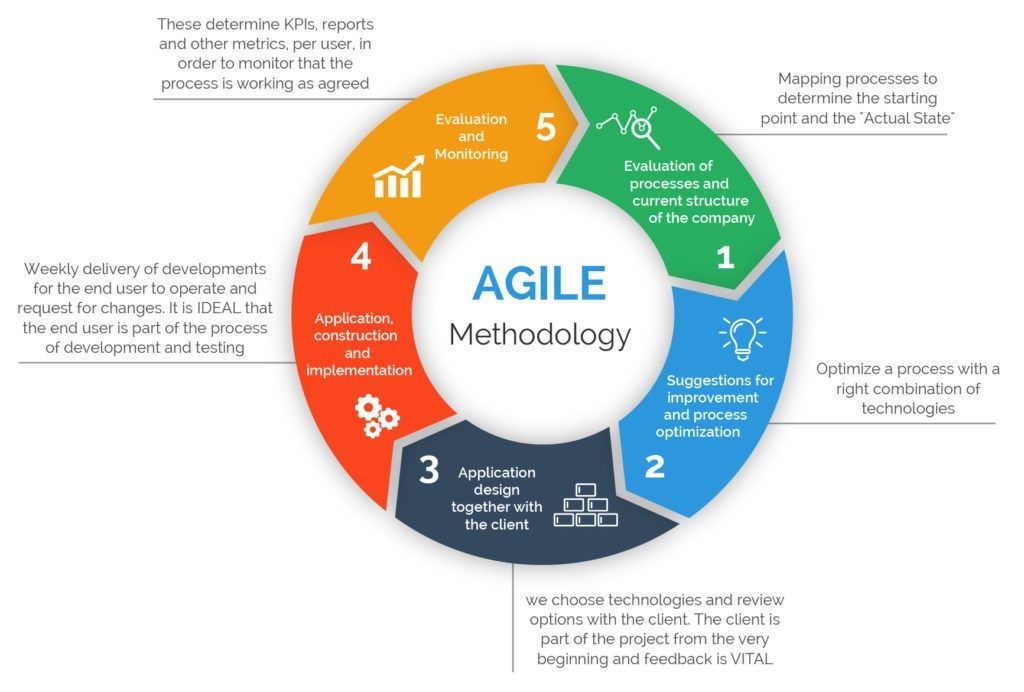Tech teams are comprised of creative individuals, each with their own ideas on how things should work. A good project manager should allow team members to express their creativity, but also keep them focused on the main goal at the same time. The PM is the team member who brings all the creative forces together.
Below are the most important project management tips that will make you a more successful manager in the tech industry:
1. Set Clear Goals and Expectations
Everyone involved with a project should be aware of their tasks, deadlines, and final goals. It’s best to use a project management tool that sets a clear track and helps you distribute tasks between members. (But we’ll get to that point later on.) As you respond to the changing conditions, you should always keep the final goal to mind.
A change in the process must not affect the quality and timely delivery of the final result. Whenever you’re introducing a new solution or task into the project, measure it against the ultimate objective. Your tech team members will continuously come with ideas. Some of them will be great, but others won’t fit into the plan.
2. Stay Flexible and Open to Suggestions
Set precise goals for the team and outline the process of development upfront. However, remain open to the suggestions the team members may come up with along the way — as they may know or discover better tools to use.
When a suggestion is not acceptable, explain why to the team that’s the case. You can even have a brainstorming discussion with the entire team before the kickoff so each of the members can give suggestions to achieve the goal.
3.Use Technology More Efficiently
Excel is nice, but it may not be powerful enough for a tech-focused team — especially if you don’t know how to zoom in on a Mac. For larger teams and complex projects, LiquidPlanner is a much better choice. It lets you create schedules with ranged estimates, arrange tasks between team members, and track their progress. You’ll keep an eye on everything that’s going on, and the schedule updates instantly as tasks are completed or if anything unpredicted occurs.
4. Keep in Touch with the Team (and Don’t Forget About the Remote Members)
Your project management app is great for tracking the project throughout all its stages. However, it doesn’t always enable you to establish that human connection with remote team members. For that, you absolutely need a video conferencing tool. Think of using tools like Skype or Zoom, if your company doesn’t already.
If you’re not managing remote workers, bring everyone in for status meetings on a regular basis. Casual meetings will help you reinforce the team spirit and focus. Talk about everything related to the project — good and bad —and give everyone a chance to share ideas and insights.
5. Take an Agile Approach
You may experiment with your own approach to managing projects, but keep in mind that the Agile approach is currently one of the most common ways to manage tech teams, and it just might be the best fit for you and your team. Your team needs to detect and solve issues quickly to reach the final goal without compromising quality and doing so in sprints may help reduce the overall stress or feelings of being overwhelmed by the project’s scale.

6. Eliminate Distractions
If you see team members getting distracted with chat, email, and social media, you help pull their attention from the distractions and back to the projects. You can do this by making sure everyone understands the project’s value and likes the project. You can also encourage individuals to block out time to be heads-down on their calendar, or schedule team working sessions.
7. Keep the Customer in Mind
Project managers should have a holistic view over the full project, including the value that it will bring to the final users. Engineers often focus on their precise tasks, so as the PM, you’re responsible for bringing things together with a customer-oriented mindset. Be the advocate and the voice of the customer when they’re not in the room.
8. Get Feedback Throughout the Project
When you distribute tasks or change something in the project, try to ask yourself how it affects the broader team. Do you need to collect insight or suggestions before moving forward? And at the end of the project, plan a wrap-up or post-mortem or lessons learned meeting — What did everyone think about the project and its effectiveness? Do they like the final product? Let the team members offer feedback on your work as a manager, too, and use this information to improve your skills as a PM.







